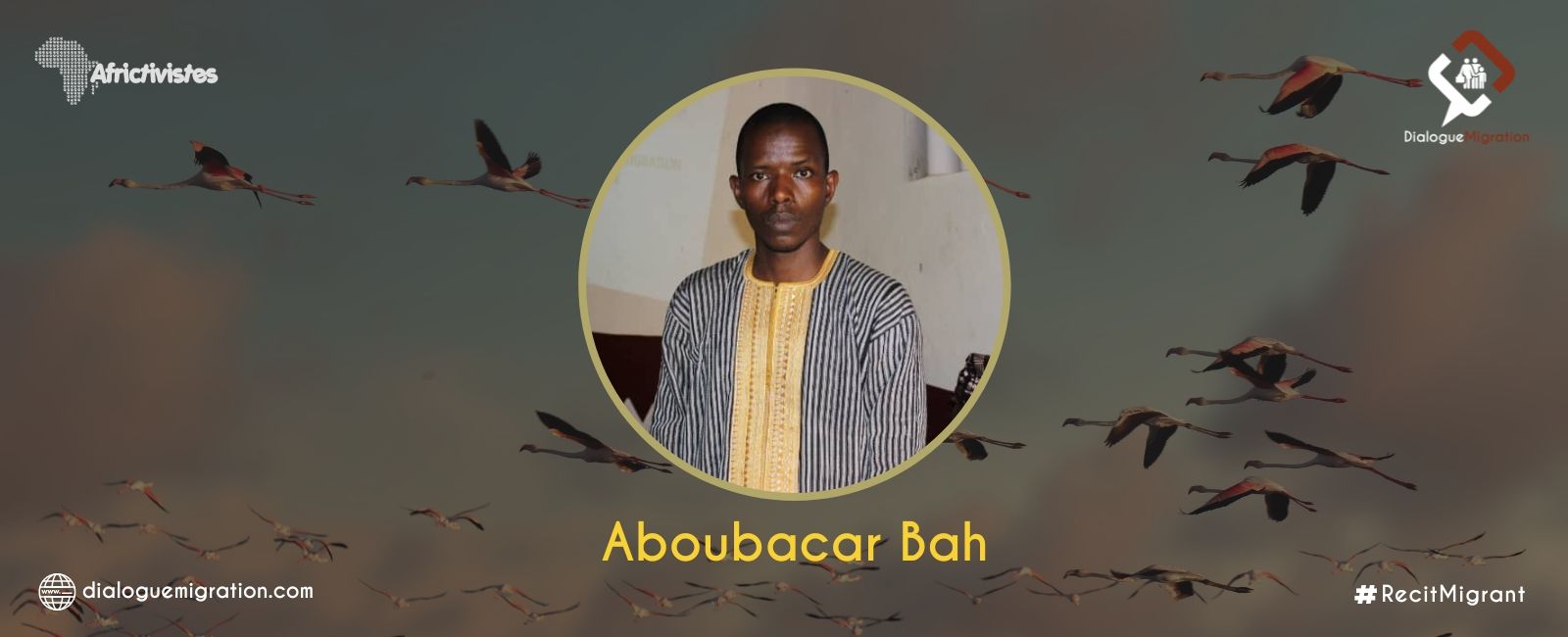

To get away from the living conditions in their countries, many young Africans opt for the adventure to the Western world in search of a better life by legal or “illegal” means. Some leave for further education in order to return and serve their respective countries.
Young Guineans are therefore not on the sidelines of this wave of migration. Dialogue Migration met Aboubacar Bah who decided to return to Guinea after several failed attempts. Today, he is fighting against “illegal” migration in his country.
In 2017, Aboubacar Bah chose to leave Guinea due to complicated working conditions. After his university degree in Public Administration in 2011, the young graduate decided to embark on teaching Economics in high school and Mathematics in private colleges in the Guinean capital. Some time later, he gave up on teaching. He found that this profession was not profitable. This is how he chose to try to emigrate to a European country to further his studies. “These are all reasons that pushed me to want to leave Guinea,” explains the youth.
Before immigrating illegally, Aboubacar Bah had opted for the legal route. Thus, he had filed visa applications several times in different embassies. “I tried to leave legally, but I didn’t have enough means to continue the process,” he said.
The route
Before leaving, Aboubacar Bah went through the path of tradition; he sought his parents’ blessing in Labé (northern Guinea). It was from there that he embarked for Agadez (Niger) by road via Bamako, Mali.
On the road to emigration, Aboubacar remembers the difficulties he encountered. “Despite my ID card and passport, we were asked for money at every checkpoint. It was with great difficulty that I arrived in Niamey (capital of Niger, editor’s note), because I had not been able to reach Agadez directly,” he said.
In Niamey, Aboubacar meets a smuggler who should facilitate his journey from Niamey to Agadez, and then to the south of the Algerian Sahara in Tamanrasset. There, the young Guinean started doing masonry in order to have enough money to live. “I did the masonry in Tamanrasset for two weeks, the time to collect some money because I did not want to call the person to whom I had entrusted my money to ask him to send me some. This job allowed me to pay my ticket to Oran (Algeria), to try to cross to Morocco,” says the former migrant.
The journey to Morocco was very hard for Aboubacar. “I was beaten along with other travellers by the Moroccan border police. They arrested us and sent us back to the Algerian border. The Algerian police took us to the hospital for medical treatment. We were in critical conditions. Then we were sentenced and we had 3 months to leave the country,” he recalls.
Despite this conviction, Aboubacar remained in Algeria to look for work. He was hired as a labourer in construction sites. Thanks to this work, he was able to save money and decided to try a cross-over to Morocco. This second attempt was a success.
Once in the Sharifian kingdom, Aboubacar understood that there was no way for him to find a job like in Algeria. “I realised that the country was not favourable to find a job and earn some money”. He finally understood that he had “wasted time on this trip”. It was there that he decided to return to his native Guinea.
He needed time to get back home. He had to find money to pay for his return ticket. He returned to Algeria to practise masonry for a year. This allowed him to have a small amount to start the return trip. He was thus able to return to Niger where he registered with the office of the International Organization for Migration.
Memories and reintegration into the country
Aboubacar Bah remembers the working conditions and exploitation suffered by migrant workers in the Maghreb countries. “Migrants can only be employed as labourers and this remains informal. Many migrants are victims of exploitation. Often, employers refuse to pay them. Sometimes they are evicted after working for a period of time and they cannot collect their pay. It’s more exploitation than normal work,” Bah said, adding that the salary of an Algerian labourer is much higher than that of a migrant.
“There are lots of difficulties on the road. At the entrance to Morocco, for example, in addition to the fact that we had been assaulted and severely beaten, we were victims of several scams. They saw us as people who have no value. You don’t matter to them. You are just an inferior human being.” A behaviour that Aboubacar finds unfair and unacceptable.
Back in the country, Aboubacar Bah’s commitment allowed him to be the regional coordinator in Labé of the Guinean Organization for the Fight against Irregular Migration (GOFIM), an organisation that forms a large national network composed of returning migrants who today raise awareness among candidates and potential candidates for illegal migration.
“I got involved in the fight against illegal migration in my country because I saw the realities on the ground. I have lived practically the hell of illegal migration. For me, I have to contribute to the awareness and education of my peers,” he says. He said he understood that by taking the path of illegal emigration, one accumulates a great delay in one’s life while exposing oneself to several difficulties.
For Aboubacar, the time we dedicate to migration can allow us to collect resources to be able to fulfil our potentials at home. “It’s a way of telling my peers that they can stay here and work. They don’t need to take risks by taking the illegal route of migration.”
Passionate about literature and particularly poetry, Aboubacar has published a collection of poems entitled “Le Chant du griot” in which some poems express a mother’s feeling about migration and the feeling of migrants towards their choices to migrate.
“When I came back, I had to be reinstated, the task was not easy at first. But today, I thank God. Life for me is much better than before I tried to emigrate. I learned a lot along the way. I’m trying to build my own business. It is a source of pride for me to be able to make my contribution to limit this phenomenon, especially since at GOFIM we get results and we manage to help young migrants returning to have confidence in them and to integrate more easily into their community,” says the author of “Chant du griot”.
He deals with many themes concerning African and more particularly Guinean social realities. This work is a set of lyrical and engaged poems. The work was published on February 16, 2021 by Les Plumes Inspirés.


